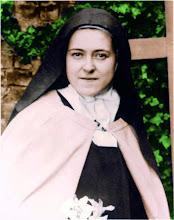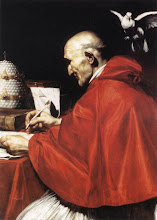To this day I cannot recall a sermon dealing with purgatory. Even outside of the Mass purgatory is rarely mentioned. We know that there is a big liberal camp who do not believe in purgatory. But you have to wonder with the more conservatives who do not deny purgatory, but have this sort of nonchalant attitude towards it. I have heard more than a few times the saying, "I am aiming for heaven, but if I get purgatory I will be happy!" I think the mentality is that since those in purgatory can only go to heaven, then it is not so bad a place at all. It really does not matter how much time one must spend there, or what one will experience while in purgatory because you will get to heaven regardless.
Another problem is that some cradle Catholics and many who have converted to the faith, measure themselves against secular society, or their past lives. They think because they are practicing Catholics or are now no longer living the life they once used to, everything will be just fine. The call to be perfect, to be saints is just an afterthought that will only apply to a special few. To help with this mentality and the mentality that purgatory is just a stop over to heaven, I will quote a few stories from Fr. F.X Schouppe's book "Purgatory, Explained by the Lives and Legends of The Saints":

"The historian Bzovius, in his History of Poland, under the date 1598, relates a miraculous event which happened to the Venerable Stanislaus Chocosca, one of the luminaries of the Order of St. Dominic in Poland. One day, whilst this Religious, full of charity for the departed, recited the Rosary, he saw appear near him a soul all enveloped in flames. As she besought him to have pity on her, and to alleviate the intolerable sufferings which the fire of Divine Justice caused her to endure, the holy man asked her if this fire was more painful than that of earth? "Ah!" she cried, "all the fires of earth compared to that of Purgatory are like a refreshing breeze." Stanislaus could scarcely believe it. "I wish," he said, "to have a proof. If God will permit, for your relief, and for the good of my soul, I consent to suffer a part of your pains." "Alas! you could not do this. Know that no human being could endure such torment and live. However, God will permit you to feel it in a light degree. Stretch forth your hand." Chocosca extended his hand, and the departed let fall a drop of sweat, or at least of a liquid which resembled it. At the same instant the Religious uttered a piercing cry and fell fainting to the ground, so frightfully intense was the pain. His brethren ran to the spot and hastened to give him the assistance which his condition required. When restored to consciousness, he related the terrible event which had occurred, and of which they had a visible proof. "Ah! my dear Fathers," he continued, "if we knew the severity of the Divine chastisements, we should never commit sin, nor should we cease to do penance in this life, in order to avoid expiation in the next."
Here is another story in the book quoted by St. Robert Bellarmine:
"In the first place, let us see what the pious and learned Cardinal Bellarmine quotes from Venerable Bede. England has been witness in our own days, writes Bede, to a singular prodigy, which may be compared to the miracles of the first ages of the Church. To excite the living to fear the death of the soul, God permitted that a man, after having slept the sleep of death, should return to life and reveal what he had seen in the other world. The frightful, unheard-of details which he relates, and his life of extraordinary penance, which corresponded with his words, produced a lively impression through out the country.....
There was in Northumberland a man named Drithhem, who, with his family, led a most Christian life. He fell sick, and his malady increasing day by day, he was soon reduced to extremity, and died, to the great desolation and grief of his wife and children. The latter passed the night in tears by the remains, but the following day, before his interment, they saw him suddenly return to life, arise, and place himself in a sitting posture. At this sight they were seized with such fear that they all took to flight, with the exception of the wife, who, trembling, remained alone with her risen husband. He reassured her immediately: "Fear not," he said; "it is God who restores to me my life; He wishes to show in my person a man raised from the dead. I have yet long to live upon earth, but my new life will be very different from the one I led heretofore." Then he arose full of place, and there remained long in prayer. He been dear to him upon earth, to whom he declared that he would live only to prepare himself for death and advised them to do likewise. Then having divided his property into three parts, he gave one to his children, another to his wife, and reserved the third part to give in alms. When he had distributed all to the poor, and had reduced himself to extreme indigence, he went and knocked at the door of a monastery, and begged the Abbot to receive him as a penitent Religious, who would be a servant to all others.
The Abbot gave him a retired cell, which he occupied for the rest of his life. Three exercises divided his time - prayer, the hardest labor, and extraordinary penances. The most rigorous fasts he accounted as nothing. In winter he was seen to plunge himself into the frozen water, and remain there for hours and hours in prayer, whilst he recited the whole Psalter of David. The mortified life of Drithelm, his downcast eyes, even his features, indicated a soul struck with fear of the judgments of God. He kept a perpetual silence, but being pressed to relate, for the edification of others, what God had manifested to him after his death, he thus described his vision:
"On leaving my body, I was received by a benevolent person, who took me under his guidance. His face was brilliant, and he appeared surrounded with light. He arrived at a large deep valley of immense extent, all fire on one side, all ice and snow on the other; on the one hand braziers and caldrons of flame, on the other the most intense cold and the blast of a glacial wind.
"This mysterious valley was filled with innumerable souls, which, tossed as by a furious tempest, threw themselves from one side to the other. When they could no longer endure the violence of the fire, they sought relief amidst the ice and snow; but finding only a new torture, they cast themselves again into the midst of the flames.
"I contemplated in a stupor these continual vicissitudes of horrible torments, and as far as my sight could extend, I saw nothing but a multitude of souls which suffered without ever having repose. Their very aspect inspired me with fear. I thought at first that I saw Hell; but my guide, who walked before me, turned to me and said, 'No; this is not, as you think, the Hell of the reprobate. Do you know,' he continued, 'what place this is?' 'No,' I answered. 'Know,' he resumed, 'that this valley, where you see so much fire and so much ice, is the place where the souls of those are punished who during life, have neglected to confess their sins, and who have deferred their conversion to the end.....
Such was the recital of Drithelm. When asked why he so rudely treated his body, why he plunged himself into frozen water, he replied that he had seen other torments, and cold of another kind"
There are many stories similar to the ones I have quoted above, stories of Christians who lived very saintly lives, yet due to the slightest fault, would have to undergo much suffering in Purgatory.
Knowing and keeping in mind the reality of purgatory will motivate us to do more penance, fasting, and indulgences in order to remit our temporal punishment due to sin. It will also enable us through compassion to pray for the souls suffering in Purgatory.
Purgatory makes up one of the three parts of the Church, the Church Suffering.
The Church Militant (Christians on Earth)
The Church Suffering (Christians in Purgatory)
The Church Triumphant (Christians in Heaven)
We, the Church Militant, must assist our brothers and sisters in purgatory (The Church Suffering) with our constant prayers, especially praying for those who have no one to pray for them.
Our Lord showed St. Gertrude the Great that the following prayer would release a vast number of souls from purgatory each time it is said:
Eternal Father, I offer you the most Precious Blood of Thy Divine Son, Jesus, in union with the Masses said throughout the world today, for all the Holy Souls in purgatory. Amen
We must strive to live perfect Christian lives, free of sin, to avoid as much time as possible in Purgatory. We must also aid the Church Suffering with our prayers and penances, as they will return the favor and aid us when they are in Heaven.
Here is a short sermon on Purgatory:
www.audiosancto.org/sermon/20100725-Purgatory-Why-and-How-Long-.html













It was once explained to me by a priest that the pain of purgatory consisted in the ability to see our eternal reward without being able to receive it until our due time. However, if this were to be true, we really would not be pained all that much, as we would suffer only a slight annoyance with the admixture of the pleasure that comes with knowing that we will soon have eternal life with our Blessed Lord. We would be like people standing in line at a restaurant waiting to be seated, with stomaches growling, gazing upon the decadent buffet that we will shortly devour. But having to wait, as something we often make children and animals do, is not so much a punishment but an exercise in patience and self control. However purgatory is not an exercise to develop virtue rather it is a punishment which purges us of all that has defiled us because nothing defiled can enter into heaven. Along with sacrifice, virtue, poverty, and intellectual wisdom, the reasons for punishment are no longer properly understood within the minds of the Catholic faithful. Knowing the pains that most of us will endure we would strive to limit this punishment as much as possible through prayer and penance as the saints did.
ReplyDelete